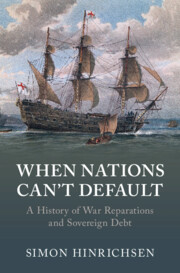 |
| Image source: email by organizers |
Description:
MEETINGS OF LEGAL CULTURES
XXVIIth Annual Forum of Young Legal Historians Sarajevo, (21 - 23 September 2023)
CALL FOR PAPERS 2023
We are pleased to announce a call for papers for our upcoming gathering, which aims to explore the convergence of legal cultures. This event seeks to provide a platform for young legal historians to share their latest research on the meeting of legal cultures. We welcome papers that examine the challenges and opportunities presented by cross-cultural encounters, and that shed light on the ways in which legal systems have evolved and adapted to new contexts.
The convergence of legal cultures between the Orient and Occident has played a pivotal role in the development of law throughout history. As the East and West have interacted and exchanged ideas, legal systems have adapted and evolved to new contexts. However, these encounters have also presented significant challenges, particularly when reconciling conflicting norms and protecting fundamental values. The ongoing encounter of legal cultures between the Orient and Occident remains a critical aspect of legal history, shaping the evolution of law and promoting a more interconnected and just legal system that embraces both Eastern and Western perspectives.
The study of the convergence of legal cultures is crucial for legal history because it sheds light on the ways in which legal systems have developed and interacted with each other over time. By examining how legal systems have evolved through cross-cultural encounters, legal historians can gain insight into the complex dynamics of legal change and devel
opment. Moreover, the study of the convergence of legal cultures can help legal historians to uncover the diverse range of legal traditions that have existed throughout history, and to appreciate the unique contributions that different legal systems have made to the evolution of law. Ultimately, by studying the convergence of legal cultures, legal historians can better understand the complex and dynamic nature of law, and can contribute to the development of a more inclusive and diverse legal history.
The following are not an exhaustive list of topics we would like to see submissions fall under:
1. Meeting of legal cultures
2. Religious law
3. Roman law
4. Modern legal systems
We believe that the conference gives young legal historians a unique opportunity to present their research in the field and to get acquainted with the interdisciplinary approaches presented by their colleagues from around the world. If you would like to present a paper during the conference, please send an application including an abstract of not more than 250 words and your CV to centerforlegalcultures@gmail.com before 1st of July. Presentations have to be in English and should not exceed 20 minutes each.
The conference fee will be € 150 (for online participants €100) - and does not include travel and accommodation. After 1st of July accepted papers will be informed and will be contacted further to complete the registration by paying the conference fee.
Best Regards,
Organizing Committee
For more details, visit the AYLH website.


